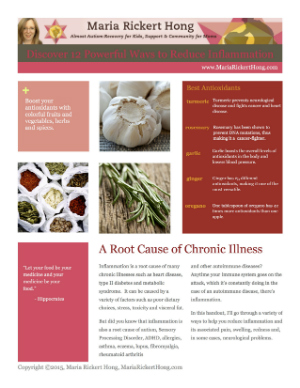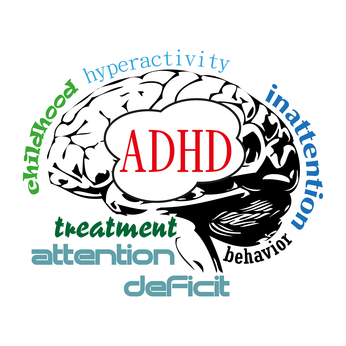 I am fortunate to have Dr. Randy Schulman, MS, OD, FCOVD, as my sons’ behavioral optometrist. Dr. Schulman wrote the chapters on the role of vision therapy and optometry in Patty Lemer’s book, “Envisioning a Bright Future: Interventions that Work for Children and Adults with Autism Spectrum Disorders“, which I reviewed earlier. Patty was the one who recommended Dr. Schulman to me, and she practices in my area.
I am fortunate to have Dr. Randy Schulman, MS, OD, FCOVD, as my sons’ behavioral optometrist. Dr. Schulman wrote the chapters on the role of vision therapy and optometry in Patty Lemer’s book, “Envisioning a Bright Future: Interventions that Work for Children and Adults with Autism Spectrum Disorders“, which I reviewed earlier. Patty was the one who recommended Dr. Schulman to me, and she practices in my area.
Patty has always talked about the importance of vision therapy for people with autism, ADHD, sensory processing disorder (SPD), learning disabilities and other neurological disorders. Now I know why. In fact, Patty’s book was published by the Optometric Extension Program Foundation, which should give you a clue as to the importance of vision in neurodevelopmental disorders.
Vision Problems a Cause of Many ASD Symptoms
I was astounded to learn that vision problems are a CAUSE of, not a by-product of, many ASD symptoms. “Poor eye contact, repetitive stimulatory behaviors and practically every other behavioral symptom (such as staring at lights or spinning objects, side viewing and head tilting) could be caused by poor fixation, accommodation, or eye teaming abilities.”
Vision Therapy Can Bring Gains in Social and/or Language Ability
Dr. Schulman writes that, “visual problems affect cognitive, speech-language, social-emotional and perpetual development”, and she relates many cases in these chapters of children who showed great gains in social or language ability after beginning vision therapy. One child made eye contact for the first time, another spoke (in full sentences) for the first time.
However, only about a third of patients see immediate gains on the first visit, but many more see big gains after weekly vision therapy sessions. Dr. Schulman points out that, “Most children do not outgrow delays in visual development without intervention”.
Understanding the Development of the Sensory System
To understand why children can see gains in these seemingly unrelated areas, you need to understand how the sensory system develops and how it is affected by primitive reflexes. Dr. Schulman does an excellent job of laying this out, while revealing, to me at least, some surprising findings.
I had known that gross-motor delays are common in children with neurodevelopmental disorders, especially if they skip or move too quickly through a developmental phase. I experienced this with my own two sons: my older son didn’t walk until he was 20 months old, my younger son when he was 16 months. My older son never cross-crawled, which is imperative for wiring the brain for correct vision as it is the same ratio as an older child looking at his desk. Remember that vision is not seeing. Vision is what happens inside the brain once the eyes have seen.
I’ve recovered them from sensory processing disorder, but there are still residual issues that remain. In fact, my older son just got bifocals from Dr. Schulman; the top part is for distance because he’s nearsighted and the bottom part is blank. I’m betting that 99% of most optometrists would’ve given him regular glasses to correct for his nearsightedness and left it at that. Having bifocals gives his eyes a chance to develop further without completely relying on corrective lenses.
Vision at the Top of the Hierarchy of Senses
In any case, there is a hierarchy of senses, and vision is at the top, meaning that other senses must develop first before proper vision occurs. As babies get older, a neurotypical child inhibits primitive reflexes that are necessary to integrate the senses and provide the ability to sit up straight, cross crawl, walk, etc. Dr. Schulman writes, “Vision develops according to a hierarchy, and vision development will be delayed by immature oral and motor development”.
Retention of these reflexes is common in children with neurodevelopmental disorders, which is why they may appear, to the unknowing person, to be more clumsy and/or to have poor gross- and fine-motor skills, which can ultimately lead to poor social skills.
She writes that, “Postural warps can mirror visual dysfunctions and asymmetries – either caused by or causing them.” The timing of reading this could not be more coincidental to me, as I just posted a blog written by an OT, Sonia Story, for Epidemic Answers called, “Children Thrive with Neurodevelopmental Movement“. In the blog, Ms. Story shows us that it’s fairly easy to spot a child, even a baby, with a developmental delay: they’re typically the ones with poor posture.
Dr. Schulman also points out that, “Children who have poor oral motor skills such as sucking, blowing or swallowing abiltity often have convergence problems that can improve once the oral concerns have been addressed”. This is due to a poor rooting reflex, which causes a baby to turn its head and open its mouth in preparation for nursing. And what does a baby do when she’s nursing? She looks at her mom! This is how babies learn to focus their eyes.
Children with vision problems typically also have hypersensitive hearing, and now I know why. Dr. Schulman writes that, “Many patients rely heavily on their auditory systems because the visual systems are so inefficient and unreliable”. Huh. So, correcting vision would reduce the stress load on the hearing system. Interesting!
These children typically also have acute senses of taste and smell, which makes them picky eaters. They “often prefer less typically used senses of taste and smell to gain information. They smell or taste inedible objects, and use touch instead of vision to gain information”. I wonder if the same logic holds true: that if vision were corrected, these children might become less picky in their eating?
Factors Affecting Vision Development
Even though I’ve read a lot about developmental delays, primitive reflexes and neurodevelopmental disorders, Dr. Schulman pointed out some things that were interesting to me, and of which I’d never heard or read, especially as it relates to vision. The most outstanding point is that, “Inadequate or inappropriate sensory stimulation and health problems, ranging from food allergies to ear infections and asthma can all disrupt vision development”.
She also writes that, “Risk factors for visual problems include frequent illness, particularly ear and strep infections, and their treatment with antibiotics.” I betcha very few pediatricians know about this risk, despite the fact that they hand out antibiotic prescriptions as if they were candy. Ugh.
Strabismus
Many children on the spectrum have an eye turn, called a “strabismus”. An opthamologist would typically recommend surgery, but Dr. Schulman points out that, in many cases, this condition can be corrected with vision therapy. Besides, fixing the eye with surgery is only a cosmetic patch and does nothing to fix the incorrect vision that causes the strabismus. “It’s not …an ‘eyeball’ problem, but rather… a brain dysfunction”.
Vision Therapy
If your child has a neurodevelopmental disorder, I urge you to seek out care from a behavioral optometrist as one of your first choices for therapy, as the vision correction he or she provides can head off some of the other sensory issues that these children have and potentially lead to better social interaction.
Reading Patty’s book and Dr. Schulman’s chapters in it will give you a very clear understanding of how these practitioners use prisms, yoked prisms, visual arousal activities and more to improve vision. You can also check out the website of the College of Optometrists in Vision Development to find a practitioner near you as well as to learn more.
 Inflammation causes pain, swelling, heat, redness and loss of function. Left untreated, it can lead to bodily tissue destruction, fibrosis and necrosis. Remember, pain is a signal that something’s wrong.
Inflammation causes pain, swelling, heat, redness and loss of function. Left untreated, it can lead to bodily tissue destruction, fibrosis and necrosis. Remember, pain is a signal that something’s wrong. Formaldehyde in Johnson and Johnson products? For decades, Americans have come to believe that Johnson and Johnson’s products are perhaps the best choice for their babies. I know that when my boys were little, I was given lots of little samples of their shampoos, body washes and powders for babies.
Formaldehyde in Johnson and Johnson products? For decades, Americans have come to believe that Johnson and Johnson’s products are perhaps the best choice for their babies. I know that when my boys were little, I was given lots of little samples of their shampoos, body washes and powders for babies. I interviewed Jennifer Margulis, author of “The Business of Baby: What Doctors Don’t Tell You, What Corporations Try to Sell You, and How to Put Your Pregnancy, Childbirth and Baby Before Their Bottom Line”.
I interviewed Jennifer Margulis, author of “The Business of Baby: What Doctors Don’t Tell You, What Corporations Try to Sell You, and How to Put Your Pregnancy, Childbirth and Baby Before Their Bottom Line”.![[Webinar Signup] What Is the Body Ecology Diet? An Interview with Donna Gates Body Ecology Diet: An Interview with Donna Gates](https://www.mariarickerthong.com/wp-content/uploads/2013/11/Donna-Gates-and-Body-Ecology-Diet.jpg) Donna Gates is the developer of the Body Ecology Diet, a gut-healing diet that can be used to recover symptoms of autism, ADHD, autoimmune diseases, hormonal imbalances and more.
Donna Gates is the developer of the Body Ecology Diet, a gut-healing diet that can be used to recover symptoms of autism, ADHD, autoimmune diseases, hormonal imbalances and more. Why are there so many food allergies these days? Sign up below for the webinar replay of my interview of Robyn O’Brien to find out.
Why are there so many food allergies these days? Sign up below for the webinar replay of my interview of Robyn O’Brien to find out. In the fall of 2013, I attended “
In the fall of 2013, I attended “ I’ve been pretty busy lately helping to organize an event for my non-profit. Epidemic Answers hosted “
I’ve been pretty busy lately helping to organize an event for my non-profit. Epidemic Answers hosted “ We honored Ken Cook of the Environmental Working Group,
We honored Ken Cook of the Environmental Working Group,  Academy-award-nominated alternative country singer
Academy-award-nominated alternative country singer  I finally got to meet Donna Gates, the developer of the
I finally got to meet Donna Gates, the developer of the 
 Did you know that most, if not all, school shootings were performed by children on some type of anti-depressant or other psychological medication?
Did you know that most, if not all, school shootings were performed by children on some type of anti-depressant or other psychological medication? I’m sorry to say that most people just don’t know this. I didn’t either, despite the fact that it was published by the Environmental Working Group (EWG) in 2005, the year my older son was born.
I’m sorry to say that most people just don’t know this. I didn’t either, despite the fact that it was published by the Environmental Working Group (EWG) in 2005, the year my older son was born.

